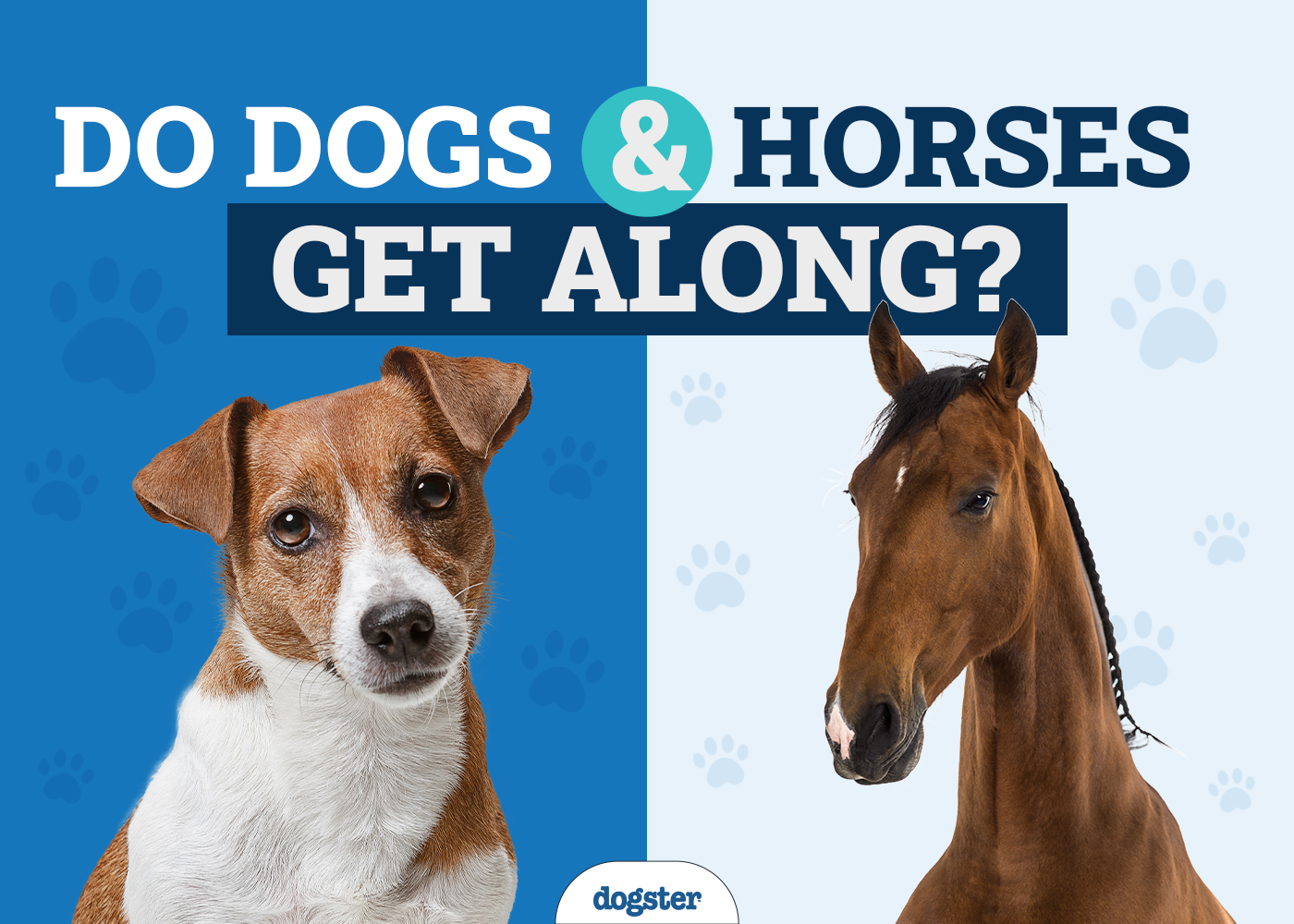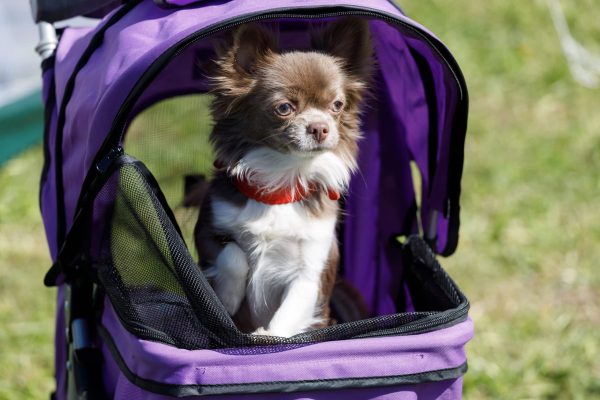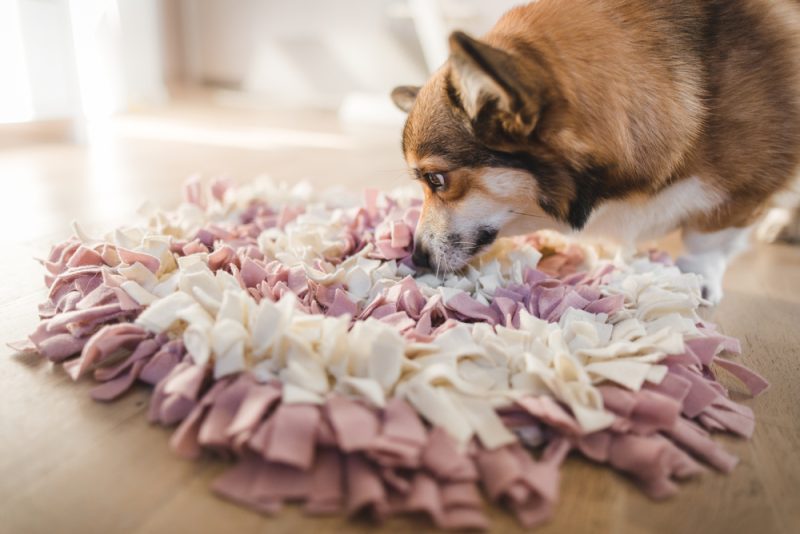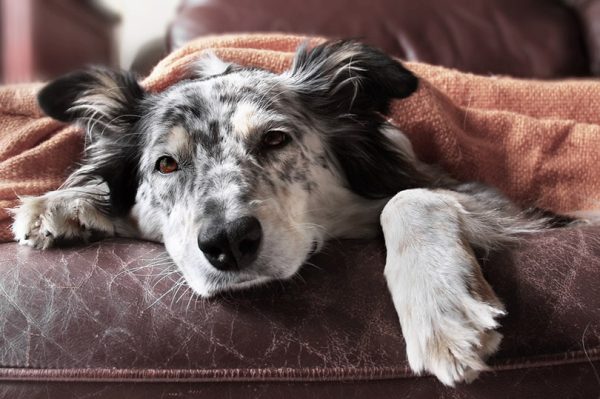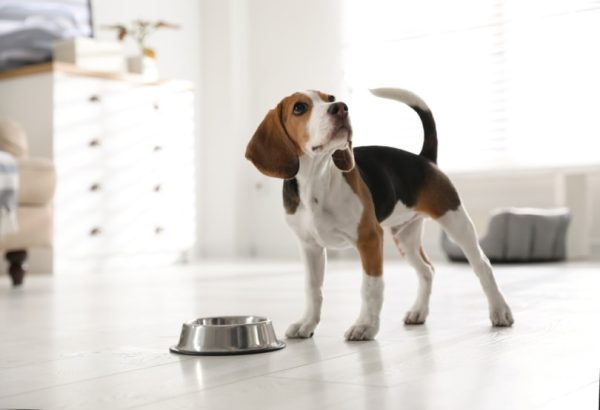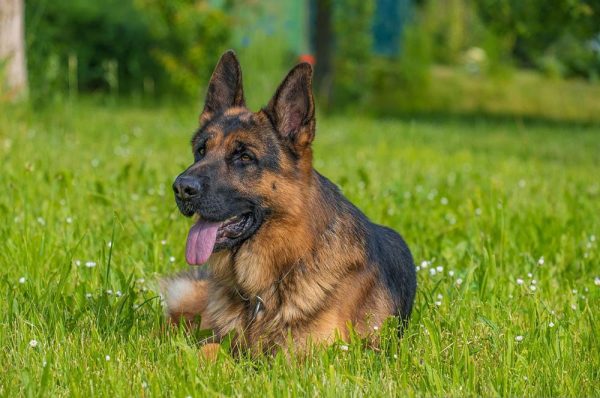Dogs have long claimed the title of “man’s best friend”, but some argue that horses could claim this because of their roles in society over time. So, taking humans out of the equation, can horses and dogs be friends?
Looking at horse and dog interactions, they can display calm, affectionate, and even playful body language towards one another.1 This has led us to conclude that yes, horses and dogs can be friends under the right circumstances, but you need to be cautious and realistic about interactions between these two species. It’s not uncommon to have “barn dogs” around horses, but they need to be well-trained. Read on if you want to introduce your horse and dog to each other in the best and safest way possible.

The 7 Tips for Fostering Friendship Between Horses and Dogs
1. Be Aware of the Risks
It should be obvious, based on the size difference between horses and dogs, that dogs can be seriously injured by horses. Even if your horse is generally sweet-tempered they can accidentally step on your dog or become scared and react. This is why it’s important to supervise all interactions between horses and dogs.
One study showed that around 2.8% of human injuries are animal-related, with horses and dogs being responsible for most of these.2 Most riders understand the dangers of horses, but your dog is also at risk of severe injuries and death when they interact with a horse. Not only that, but your dog could bite and injure your horse, especially if they are a foal.
Since we cannot 100% eliminate these injuries to ourselves, there is always a risk with these animal interactions, even more so since your pets can’t understand the risks themselves. Therefore, it’s up to you to take all necessary precautions to prevent injury to your pets. Remember, there is no need for your dog and horse to be friends; you can take steps to separate them so they never have to interact.
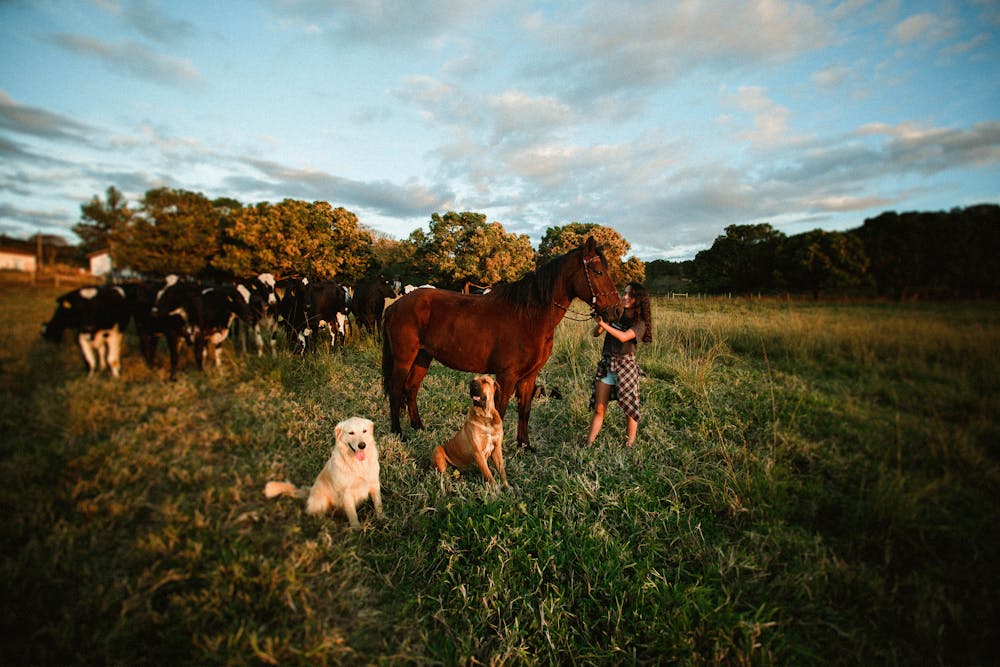
2. Define Your Goals
Having realistic goals to work towards can help you to get the outcomes you want. Teaching your dog to have some “horse sense” will require more work, but it is possible. If you want your dog to simply be calm around your horse while restrained on a leash and out of reach, this is very achievable. Goals like having your dog ride your horse or have them play together may not be realistic depending on your pets’ temperaments and can carry more risk.
3. Assess Your Pets’ Compatibility
Size, temperament, breed, age, and life experience can all affect the interaction between your two pets. Perhaps the best example of a compatible horse and dog pair are the Marrema, Sirius, and miniature horse Mercury. As a livestock guardian breed, Marremas have an instinct to bond with livestock. Both animals were introduced early in life, and their similar size minimizes risks to either party. Dogs with strong prey or herding drives may have difficulty interacting safely with horses. Very tiny dogs should perhaps avoid close contact with horses due to the high risk of injury. An overly skittish horse may not relax well around dogs and pose a threat to their safety. Keep in mind the horse is a prey animal, while the dog is a predator, so you are working against their natural, albeit dulled by domestication, instincts.

4. Socialize Your Pets
Exposure to the other species early in life will increase their comfort around each other. After the age of 14 weeks, dogs may react to new experiences, like meeting a horse for the first time, with fear. If you can expose them to positive interactions with horses early in life, they will likely be more accepting of horses in the future. You can carry your puppy in your arms to meet a friendly horse and provide treats as a reward for calm behavior. Horses may have a similar sensitive socialization period; although it’s less well-researched, it may be around 8–12 weeks.
You should also desensitize your horse to objects around the feet and underneath them. You can use objects that look similar to your dog, like a fluffy toy in the same color. Your horse’s first experience around dogs should be with a dog that is calm and experienced around horses.
5. Create Positive Associations
Now is the time to finally introduce your horse to your dog. Keeping your dog on a leash at a distance allows them to see the horse. If your dog reacts with fear or excitement, move away until they are calm. Reinforce calm behavior with treats to create some positive associations with your horse.
Similarly, the person holding your horse can reward your horse with treats for calm behavior in the presence of the dog. You should make sure your dog doesn’t go behind your horse, as this is scary for them as a prey animal. You can swap out and let someone else take the dog while you reassure your horse with pats and treats. Petting your horse on the wither can help them to relax.
Remember, both these animals are highly sensitive to human emotions, so it is paramount that you remain calm during the interactions. If you are stressed, your pets will understand that there is something to fear here.

6. Control Their Interactions
Once they are comfortable in each other’s presence, you can allow them to interact. At home, make sure your dog has good recall and understands an “away” command, as well as “sit” and “stay”. Until your dog has mastered these, they must stay on a leash. Herding dogs should understand the difference between “woah” and “get it” as they can get confused between horses and other livestock.
It will take time, repetition, and consistency to instill the new lessons, but it is vital for their safety.
7. Shape the Behavior You Want
Any poor behavior in either pet should be stopped immediately. If your dog ever jumps, barks, or lunges, you need to correct the behavior in any situation to let them know it is unacceptable. For example, if your dog walks around your horse’s hooves, this is very dangerous. You need to consistently give them an “away” command when this happens until they understand this area is out of bounds. Never punish your horse for fearful behavior, and allow them to get away from your dog if they need to.
When your dog shows good behavior, you can reward them with treats. As time goes on you can redefine the behavior that gets a treat to shape them closer and closer to your original goals. However, if your dog is always making mistakes and having to go back a step in their training, being around horses may not be for them. Similarly, if your horse is constantly spooked by your dog, it may be best to leave your dog at home.
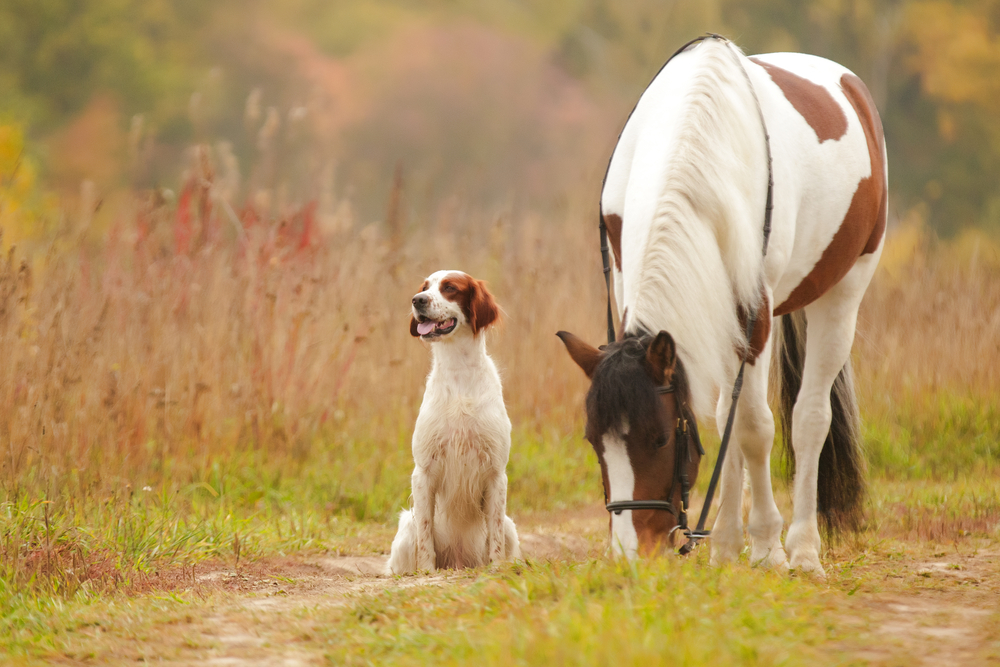

Conclusion
Owning horses and dogs can be a beautiful thing, and some horses and dogs can be incredibly compatible. It can be amazing to saddle up and go for a ride with your dog following close behind. Some special pets will bond with each other and have a friendship that seems to transcend species. However, some dogs and horses just won’t get along, and that’s okay. Since both animals can be seriously hurt by the other, sometimes it’s better to call it quits and keep them separate.
